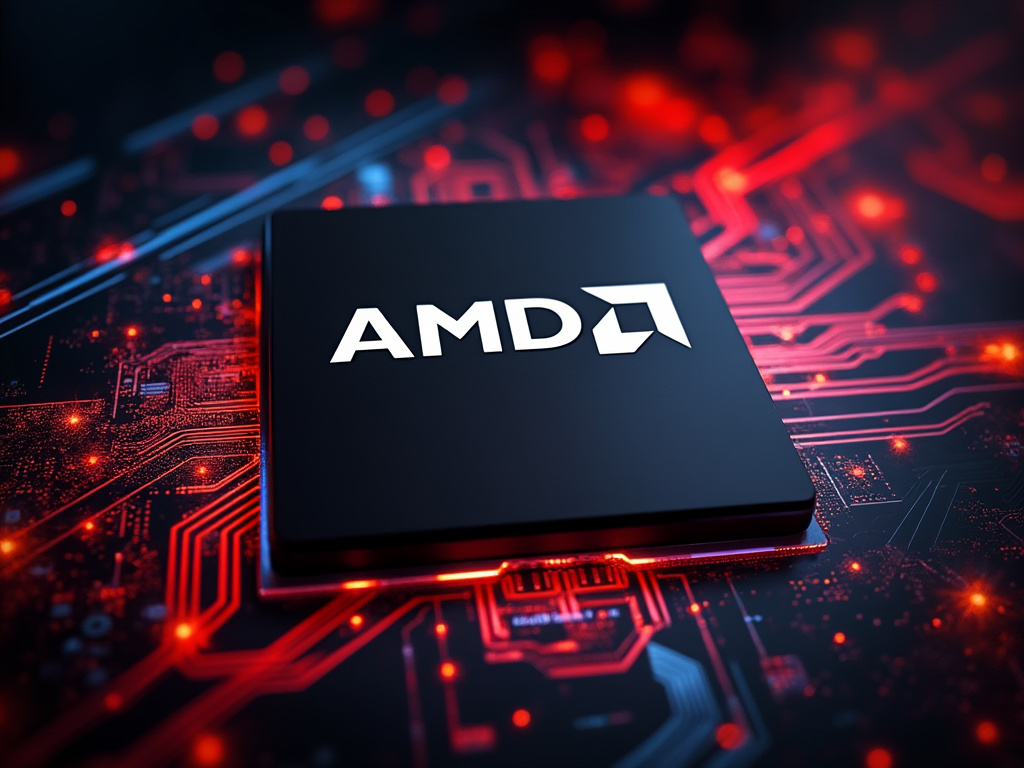AMD Acquires Silo AI: A Strategic Move in AI & Hardware
What if the future of AI isn’t just about software, but also about the chips powering it? AMD’s acquisition of Silo AI for $65 million isn’t just another tech deal—it’s a strategic move that could redefine how AI and hardware merge.
This acquisition highlights the increasing convergence of AI and hardware, as well as AMD’s ambition to become a dominant player in the AI space. But what does this mean for AMD, and how does it compare to its rivals like Nvidia and Intel?

AMD’s Vision for an AI-First Future
In August 2024, AMD made headlines by acquiring Silo AI, a leading Finnish AI company, for $65 million. While the acquisition may seem modest compared to other tech deals, the move signals AMD’s strategic shift toward an AI-first future.
AI is no longer just a niche technology—it’s becoming as foundational as microchips, transforming industries from healthcare to autonomous vehicles. AMD’s acquisition of Silo AI positions the company to lead this new era of innovation by integrating AI into its core business.
Background on AMD
Advanced Micro Devices (AMD) is a global semiconductor company known for its microprocessors, graphics cards, and other computing products. Over the past decade, AMD has has grown significantly, competing with industry giants like Intel and Nvidia. Its success in high-performance computing and data centers has made it a major player in AI-driven technologies.
Background on Silo AI
Silo AI, headquartered in Finland, is a leading private AI company specializing in industrial AI solutions. Their expertise spans machine learning, computer vision, and natural language processing, serving industries such as automotive, healthcare, and telecommunications. The company excels in integrating AI into real-world applications to enhance automation, decision-making, and predictive analytics.
How Does Silo AI Fit into AMD’s AI Strategy?
1. AI Integration with AMD’s Hardware Portfolio
AI is now essential for workloads across cloud computing, autonomous vehicles, healthcare, and gaming. By acquiring Silo AI, AMD can develop AI-optimized chips that directly compete with Nvidia’s GPUs and Intel’s AI-focused processors.
2. Boosting Software Capabilities
Hardware alone isn’t enough to lead in AI. Silo AI’s expertise in machine learning and AI software development will help AMD create more advanced hardware-software ecosystems, ensuring seamless AI performance across different industries.
3. Accelerating Growth in Key Sectors
Silo AI’s expertise allows AMD to expand in industries like:
- Automotive: AI-powered autonomous driving solutions (Tesla’s Robo-Taxis: A New Era of Transportation)
- Healthcare: AI-driven diagnostics and predictive healthcare (AI in Healthcare: 9 Innovations Shaping the Future of Medicine)
- Telecommunications: AI-enhanced 5G networks and edge computing (How 5G Technology is Transforming Industries)
4. Strengthening R&D and Innovation
Silo AI brings top-tier AI researchers, engineers, and data scientists to AMD. This talent infusion will accelerate innovation and help AMD compete with AI leaders.
AMD vs. Nvidia vs. Intel: Who Leads in AI Hardware?
| Company | AI Investments/Acquisitions | Market Impact |
|---|---|---|
| Nvidia | Acquired Mellanox & Arm, dominates AI GPU market | 90% share in AI training chips |
| Intel | Habana Labs & Movidius acquisitions | Expanding AI inference capabilities |
| AMD | Acquired Xilinx & Silo AI | Strengthening AI hardware & software ecosystem |
AMD is making up ground in AI, but Nvidia remains the dominant force. However, AMD’s focus on AI-integrated chips and software ecosystems signals a long-term strategy to challenge its biggest rivals.
Financial Considerations & ROI Potential
AMD’s $65 million purchase of Silo AI is a small but strategic investment. Given that AI is expected to be a $1 trillion market by 2030, this acquisition could significantly boost AMD’s AI chip sales and software services.
- Smart Acquisition: Strengthens AI capabilities without overextending financially
- ROI Potential: The potential return on investment is substantial. AI is one of the fastest-growing sectors, if AMD successfully integrates Silo AI’s technology, it could boost its AI chip sales and open new opportunities in software licensing, AI services, and partnerships.
- Valuation Considerations: Silo AI’s valuation at $65 million suggests a targeted acquisition aimed at capability building rather than scale. It might not dramatically alter AMD’s revenue in the short term but could have profound long-term strategic benefits.
- Competitive Edge: Helps AMD compete with Nvidia and Intel in AI innovations
Challenges and Risks
- Integration Risks: Successfully integrating Silo AI’s operations and aligning them with AMD’s existing structure may prove challenging. Mergers and acquisitions often face cultural and operational difficulties, and AMD must ensure that Silo AI’s innovative spirit is not stifled post-acquisition.
- Competition: AMD will face stiff competition from Nvidia and Intel, both of whom have invested significantly in AI technologies. AMD will need to continually innovate to stay ahead, ensuring that Silo AI’s expertise is fully utilized.
- Market Dynamics: The AI sector is highly competitive and fast-moving. AMD’s ability to capitalize on AI trends, including AI-driven cloud computing, autonomous systems, and edge computing, will be critical to the success of the acquisition.
Final Thoughts
AMD’s acquisition of Silo AI marks a significant step toward an AI-integrated future. While the deal is small financially, its strategic importance is immense. If AMD successfully integrates Silo AI’s expertise, it could reshape the AI landscape and challenge Nvidia’s dominance in AI computing.
Want to stay ahead in the AI revolution? Subscribe to Arcane AI for exclusive insights on AI acquisitions, trends, and innovations.

